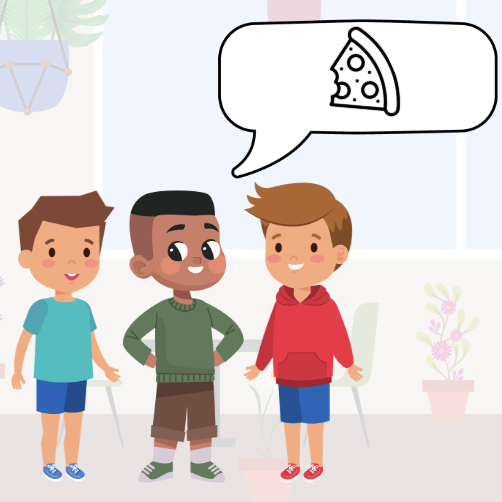
Thinking about preferences and rules
Language and Learning Lab (University of Toronto)
Who Can Participate |
For 6-8-year-olds, who are fluent in English (either monolingual English speakers, or multilingual with regular (50% or more) exposure to English in their daily lives, counting both at home and at school) |
What Happens |
This study will take place on a video call, live with a researcher! Clicking on the “Schedule a time to participate” button will send you to an online calendar where you can select a date and time that works for you. In this study, your child will watch a series of short videos and answer questions related to these videos. Your child will listen to four short stories, and based on their understanding of the stories, will be prompted to answer questions about what they think would have happened if elements of those stories had been changed. For example, they will be told about a character's preference for a certain type of pizza (with either pepperoni or mushrooms), and will be asked if the character would still have eaten the pizza if changes were made to it (e.g, no mushrooms, no pepperoni). |
What We're Studying |
The purpose of this study is to help us better understand the kinds of situations children can think and talk about. We present children with short stories which use counterfactual conditionals - a type of sentence that lets us talk about events which are not real. For example, “If Giraffes had wings, they would fly” is a counterfactual, because it tells us something about the state of the world if Giraffes had wings (even though they don’t in real life!). Through this study we want to analyze whether children respond more or less like adults when thinking about counterfactuals involving mental state variables (e.g., someone's beliefs, someone's adherence to rules), and whether different kinds of mental state variables are easier for children to think about counterfactually. We test whether external factors (social norms and rules, e.g., a child having to finish their homework before they can play with their friends) have the same or a different influence than internal factors (preferences and opinions, e.g., liking certain toppings on pizza) on a child’s ability to reason counterfactually. In doing so we gain a deeper understanding of the kinds of situations children area able to reason over. |
Duration |
15 minutes |
Compensation |
For families residing in Canada, you will receive a $5 gift card to Indigo after participation. For families residing in the United States, you will receive a $5 gift card to Amazon.com after participation. To be eligible for compensation, you must meet all of the following criteria: (1) Your child falls within the specified age range for this study, and meets the language requirements and (2) you provide recorded verbal consent. Each child is eligible to participate to receive a gift card only once; participants cannot do the study more than once for compensation. You will receive your gift card via email within 1-10 business days after participation. |
This study is conducted by Patricia Ganea (contact: ioana.grosu@utoronto.ca).